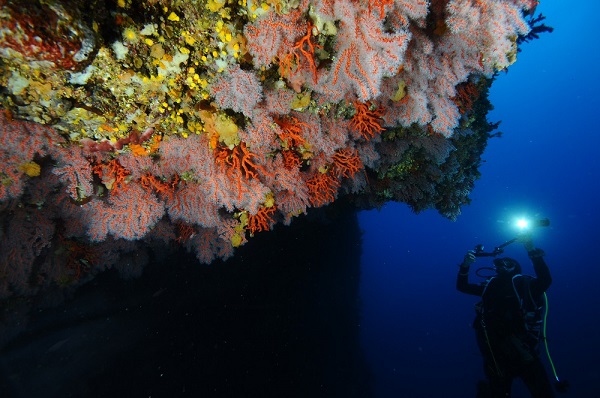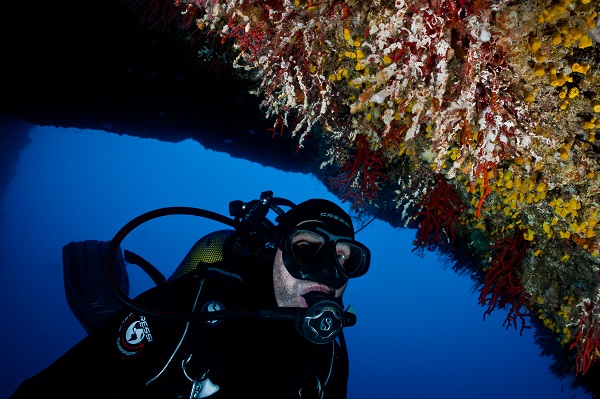According to a new study, coral populations of the Mediterranean —essential for the functioning of the coral reefs, one of the most emblematic habitats in this sea— could be unable to recover from the recurrent impact of these extreme episodes, with water temperatures reaching high degrees for days and even weeks.
A new study led by teams of the Faculty of Biology, the Biodiversity Research Institute (IRBio) of the UB, and the Institute of Marine Sciences (ICM-CSIC) of Barcelona has revealed that marine heatwaves associated with the climate crisis are bringing down the populations of coral in the Mediterranean, the biomass of which in some cases has been reduced by 80 to 90%.
This is the first study to assess the long-term recovery capacity of populations of two emblematic species of Mediterranean coral: the red gorgonian (Paramuricea clavata) and the red coral (Corallium rubrum), which provide complex habitats that are essential for a great diversity of associated fauna. Therefore, it is essential to understand their resilience regarding the more frequent and intense heatwaves.


Story Source: Materials provided by University of Barcelona. Note: Content may be edited for style and length.
Reference article: Gómez-Gras D.; Linares C.; López-Sanz A.; Amate R.; Ledoux J. B.; Bensoussan N.; Drap P.; Bianchimani O.; Marschal C.; Torrents O.; Zuberer F.; Cebrian E.; Teixidó N.; Zabala M.; Kipson S., Kersting D. K.; Montero-Serra I.; Pagès-Escolà M.; Medrano A.; Frleta-Valić M.; Dimarchopoulou D.; López-Sendino P.; Garrabou J. «Population collapse of habitat-forming species in the Mediterranean: a long-term study of gorgonian populations affected by recurrent marine heatwaves». Proceedings of the Royal Society B, December 2021. DOI: 10.1098/rspb.2021.2384
